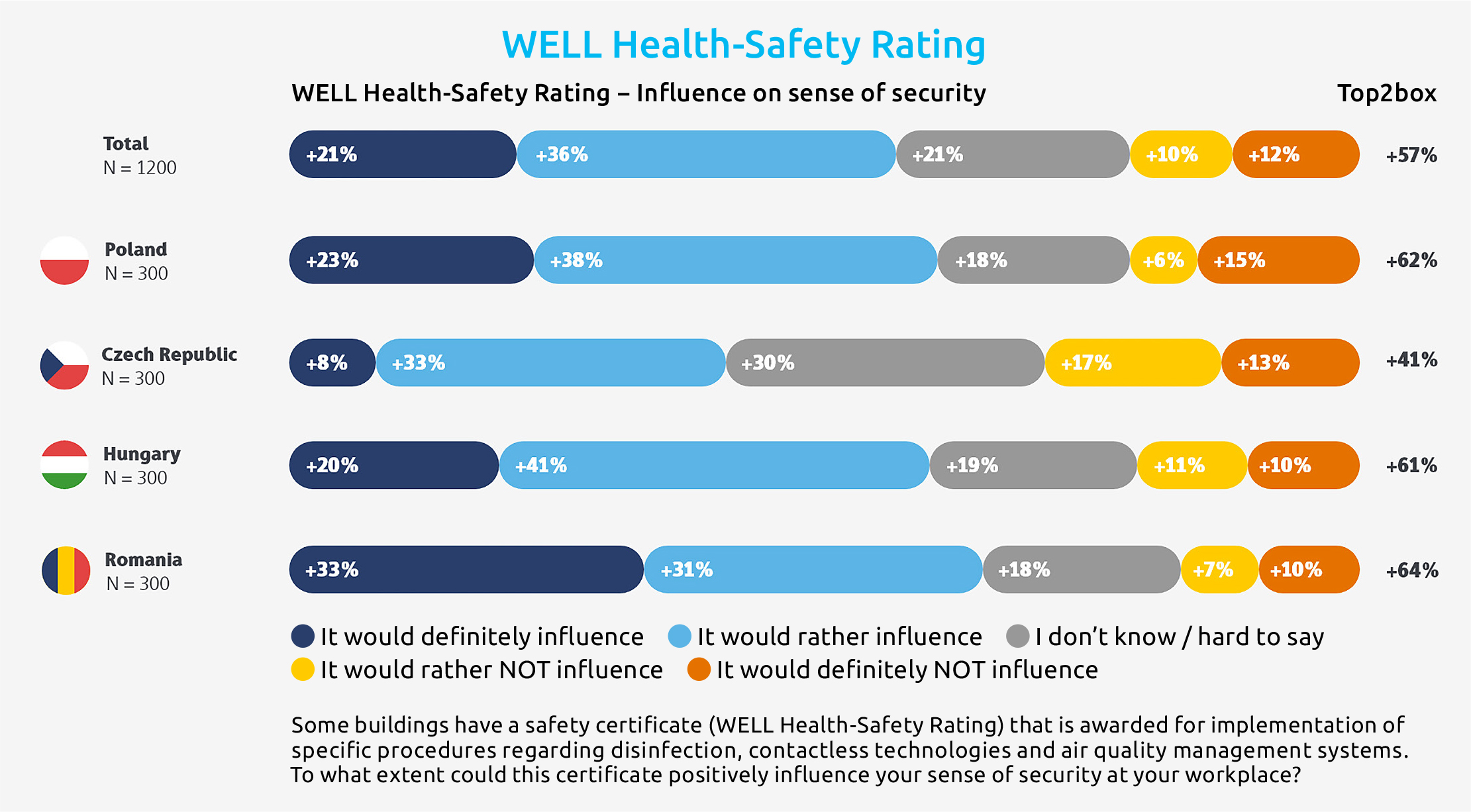Workers Tend to Prefer Office to Home Working: Skanska Survey

Almost half of all Central and Eastern European employees say they go to the office every day, despite more than 60% of respondents saying that they have comfortable working conditions at home, according to a study conducted on behalf of the Skanska office development unit in the region.
The study focuses on the Czech Republic, Hungary, Poland and Romania. The research was conducted by Zymetria on behalf of Skanska; using the computer-assisted web interviewing (CAWI) method, responses were collected from 1,200 office workers in the four CE countries.
The survey reflects positive attitudes towards the office despite the COVID crisis and would seem to be good news for office developers and owners in the CEE region. In Hungary in May 2020, 44% of respondents reported that they went to work every day and 17% said they went in to the office two to three times a week.
The separation of work and home life is a major factor for nearly half of the employees surveyed. Having the possibility to work in a different place other than home helps create a natural separation between work duties and private life.
Asked what were the biggest disadvantages of working from home, 40% of respondents mentioned an inability to maintain a healthy work-life balance. Other major difficulties indicated are the limited social life and monotony. The possibility of discussing various matters with colleagues face-to-face seems to be an extremely important aspect, especially for Hungarian and Romanian workers.
More Productive
The study suggests that working in an office is viewed by employees as more productive: only 20% of respondents prefer working from home. This tendency is especially true for those who work in a team, as they more often believe that working from home is less effective (54% versus 39% of the total).
Despite the ongoing pandemic, offices are still considered safe by two-thirds of all office workers from the surveyed countries; further, nearly 60% of respondents indicate that safety certificates, such as the WELL Health-Safety Rating, have a positive impact on their sense of security at work. For Hungary, 20% of respondents said it would “definitely” influence their sense of security in the office, while 40% said it would “rather” influence their sense of security.
“Despite the pandemic, we can clearly see the undeniably important role of office space in the working life of many people. As it can be seen, above all, working from the office is a natural way for the employees to set and maintain a healthy line between their career and private life,” comments Arkadiusz Rudzki, executive vice president for leasing and sales at the Skanska commercial development business unit in CEE.
“Thus, the possibility to go to the office is a valuable part of everyday life, enabling workers to keep up their effectiveness, creativity and satisfaction from work, which constitute key factors. We are glad that people still perceive offices as safe, and certificates like the WELL Health-Safety Rating, which we have received for our eight properties in CEE, strengthen this confidence,” Rudzki adds.
This article was first published in the Budapest Business Journal print issue of April 9, 2021.
SUPPORT THE BUDAPEST BUSINESS JOURNAL
Producing journalism that is worthy of the name is a costly business. For 27 years, the publishers, editors and reporters of the Budapest Business Journal have striven to bring you business news that works, information that you can trust, that is factual, accurate and presented without fear or favor.
Newspaper organizations across the globe have struggled to find a business model that allows them to continue to excel, without compromising their ability to perform. Most recently, some have experimented with the idea of involving their most important stakeholders, their readers.
We would like to offer that same opportunity to our readers. We would like to invite you to help us deliver the quality business journalism you require. Hit our Support the BBJ button and you can choose the how much and how often you send us your contributions.









